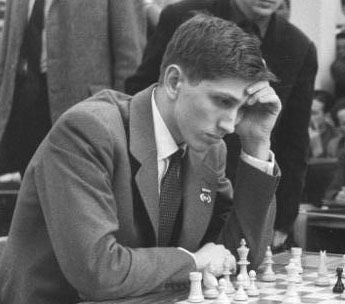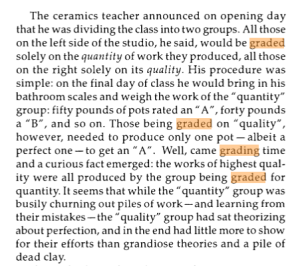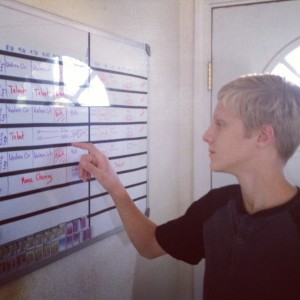Guest Post by Renee Harris.
This question comes up frequently in homeschool communities:
“Is it worth sending the next children in line to college, when we are already not so sure that college is going to make a difference to the son that is currently in college? We are getting more flack from the possibility of not choosing college for our children, than when we first decided to homeschool years ago. What is your advice?”
Here below is my response:
I absolutely think it’s necessary to think outside the box with regards to our kids’ future and education.
Here’s what our family does:
Our two older kids are at the age where they’re starting to get questioned about where they’ll attend college, as if it’s a natural extension of their high school graduation. We’re training them to understand that college should work FOR them, not the other way around. It’s more important that they have a passion/skill/talent (call it what you’d like) that can bring in an income, and that’s the way we homeschool our kids.
My husband and I are using our skills as online business owners to teach our kids how to turn that talent into an income (notice I didn’t say “job” or “employee” – whatever they do to pay the bills in the future may as well be something they love doing). Beginning at age 12, it’s critical that we start identifying and developing that talent by giving them plenty of time to explore it in depth, while feeding the necessary subject content to go right along side it.
For example: our bladesmith will study history and science through the eyes of his craft, and he then picks up physics and chemistry as he needs it for his talent. Because he’s also a very good writer, we use the One Year Adventure Novel curriculum to weave what he knows about history and bladesmithing into his novel. It makes for a much more interesting book. He’s also active on forums (and Instagram)… because it is on the private bladesmithing forums where he’s able to interact with Master Bladesmiths, and even meet them in person, which he’s done with a few of these men…
He’s almost 15 and what do the people at the top of his craft say to him?:
“I wish I would have started as YOUNG as you did”
I’m not too worried about what college he’ll attend, because IF he chooses to go to college, it will be a college that will support his craft and make him better at it. It’s hard to top one-on-one mentorship with the guys he’s already interacting with. He will have a variety of ways to monetize his craft online, so that he can work from home or anywhere in the world.
Yesterday I was chatting with my CSA guy about my 16 year old and told him that I was able to leave for 5 days and my son had no problem taking over the business with shipping the products and managing my emails. The CSA friend said, “Wow! He deserves his own email account!” Au contraire, mon frere! He already has several emails, his own business website that he created himself, and he’s on his second round of business cards. What’s most impressive is that he has a fantastic business that he loves that generates good income.
His current obstacle? He’s slowed down by the fact that he needs to help out around the house, he still needs to “graduate” from high school, and he needs to fit in regular kid life of taking hikes with his buddies and camping with his family. Here’s what he does… something unheard of a few years ago: www.reddingdrone.com (because we think outside the box).
If your homeschooler is approaching graduation and you haven’t thought out the following 4 years, then yes, maybe he/she should to go college. If you have a 12-16 year old, then I highly recommend you think through what the post-high school experience can look like.
I have to credit my husband for having our homeschool goals look different than most. Here’s some food for thought, because he always asks the “why” question :
Don’t let these excuses drive you to sending your kids off to college if there’s a better alternative (and maybe there’s not… it depends on the situation)
1.) I’m getting pressure from the relatives…. (is there a good reason to do what they tell you to do… like, are they paying all your bills?)
2.) The schools/gov’t are offering free/discounted education… (are you sure there are no strings attached, including an opposing agenda? Or the temptation of accepting something for free again and again? Or a mentality that will lure your child into Visa’s free t-shirt booth in exchange for your child’s signature?)
3.) My kids need the experience since they’ve been with me the past 18 years… (please clarify: as in the experience of being in a room full of their peers? or the experience of being on their own? or the experience of having a different teacher? I would discount the first, and find alternatives for #2 and #3)
4.) They’ll make more money if they go to college first… (Look at this differently than how we were raised. Times are a-changin’. It’s not entirely true, especially if they take a talent-based route through homeschooling. Or, ask those who graduated from college in the past decade how that degree is working for them.)
5.) There’s status with a degree. (How many people have asked you where you went to school and what degree you have? We usually volunteer it, right? There’s also debt with the degree.)
All that said, we are NOT against going to college. Our kids may decide that they need a particular degree, certification or even status to do what they want to do in the future. If that’s the case, they’ll at least already have an income first, and then they can pursue the degree. They are strategizing what they need and where they’ll go to get it, but it won’t be to just attend Shasta College because they didn’t have anything else to do.
My husband has been blogging about this for the past 2+ years and has begun to create ebooks and video courses to teach people. Check out the guide “How to Discover and Develop your Child’s First 100 Hours of Talent.”
Here’s what his ideas are all about: http://10ktotalent.com/what-is-10k-to-talent/
(Note: The 10K part doesn’t refer to money, but to time – it takes 10,000 hours of focused time to become really good in your niche, so the idea is to start early, when you have the energy, resources, and you’re not strapped with a mortgage, or, um… college debt.)
Renee Harris
Mom of 8



























